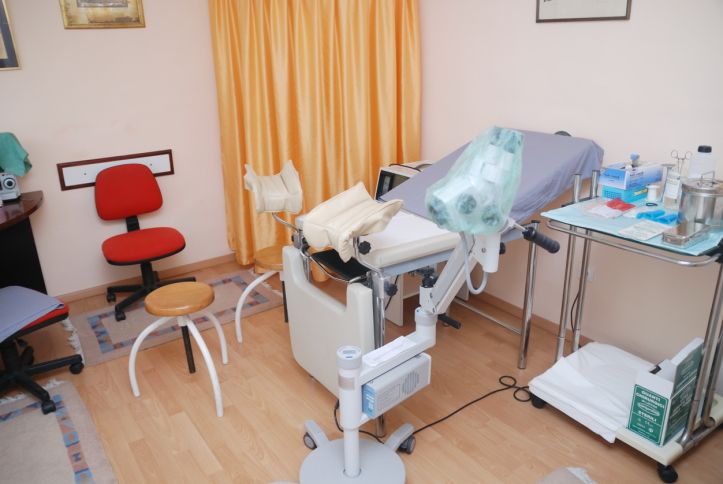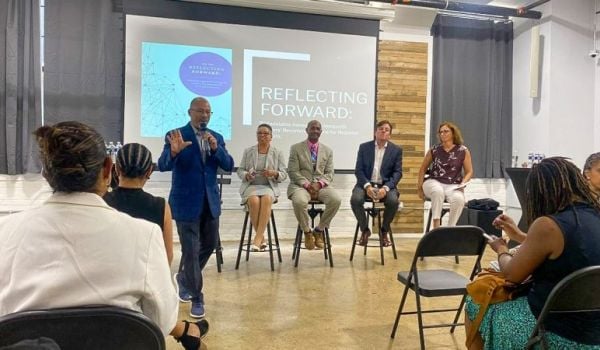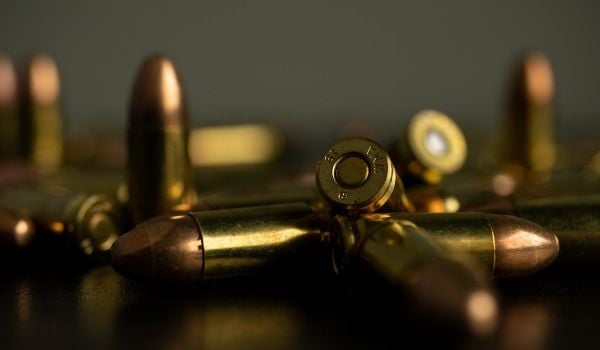Though Tuesday marked the 40th anniversary of the Roe v. Wade Supreme Court decision, Philadelphia women continue to struggle for access to safe and affordable abortions. The legislative and logistical battles here are just one small corner of a broader maternal health crisis in the city.
With some of the toughest laws restricting abortion access in the country, Pennsylvania has turned into a key battleground state on the issue. It has also historically been one of the most active states bringing cases to the Supreme Court that have undermined the scope of Roe v. Wade.
In 1989, state Gov. Bob Casey signed the Pennsylvania Abortion Control Act, which among other things required women to receive an “information session” highlighting alternatives to abortion and procedure’s risks 24 hours before it transpired. A “spousal notification” clause required women to inform their husbands before having an abortion, and a “parental consent” provision required minors prove the consent of a guardian. Clinics had to provide broad demographic information about their clients to the state, and abortions were restricted for sex selection and after six months of pregnancy, except in cases of extreme risk to the mother.
Challenges to the Abortion Control Act eventually made it to the Supreme Court in 1992, with the Planned Parenthood vs. Casey case. The court upheld all parts of the law except for spousal consent, making it a milestone for anti-abortion activists as it provided the legal means for limiting abortions. The case created the undue burden standard, which meant states could restrict abortion access as long as the burden was not “too severe” or lacked “a legitimate, rational justification.”
Activists around the country built on Pennsylvania’s example to push for more laws restricting abortions at the state level.
In recent years there has been a flurry of state-level restrictions on abortion access, with 135 restrictions imposed since 2011 alone, according to the Guttmacher Institute, a reproductive health research organization.
In June 2012 Pennsylvania implemented Act 122, which imposed tougher standards on abortion providers. Clinics had to upgrade their safety measures to match those of outpatient surgical facilities. Ostensibly this was a safety measure, but abortions are already one of the safer medical interventions available (significantly less risky than childbirth, for example). In 2011 only 0.3 percent of abortions resulted in complications in Pennsylvania, according to the department of health.
Act 122 was more of a response to the gruesome case of Kermit Gosnell, a doctor who ran an unsanitary abortion clinic in West Philadelphia. He is awaiting trial for the murder of one woman and seven infants. Until his clinic was shut down in 2010, Gosnell routinely offered third trimester abortions, killing fetuses after extraction by cutting their spinal cord.
Gosnell’s clientele was largely poor women and immigrants, many of whom could not afford abortions at more reputable clinics. In Philadelphia abortions can range from $350 to $2,000, according to Jaime Beck, director of programs at CHOICE, a Philadelphia reproductive health hotline. Pennsylvania Medical Assistance has not covered abortions since the Hyde Amendment restricted federal funds from being spent on abortions in 1976.
Gosnell’s entire operation was illegal, though, and the additional restrictions are straining the state’s legal abortion clinics. Planned Parenthood spent $500,000 updating their clinics, costs that may trickle down to patients.
Since Act 122, Pennsylvania has only 17 abortion clinics, four of which are in Philadelphia. This is a drop from 24 in the state in 2011, according to the Department of Health.
Cost, location, awareness and social stigma continue to impede women seeking abortions, according to Amy Levine, executive director at CHOICE. While the aggression of protesters has been reined in since the 1994 Freedom of Access to Clinic Entrances Act, which prohibited the physical blocking of entrances to reproductive health clinics, women still often have to push through throngs of anti-abortion activists to enter clinics. With the mandatory 24-hour wait between the information session and procedure, women sometimes have to take several days off work to get an abortion.
Beck called the past 40 years a “roller coaster” for women’s reproductive health. Pennsylvania, in particular, earned an “F” grade from NARAL Pro-Choice America, a lobbying firm.
But despite all the barriers, women in Philadelphia still have it easier than some. Forty percent of the state’s abortions took place in Philadelphia in 2011, and 80 percent of counties in Pennsylvania don’t have an abortion clinic at all.

Allyn Gaestel is currently a Philadelphia Fellow for Next City. Much of her work centers on human rights, inequality and gender. She has worked in Haiti, India, Nepal, Mali, Senegal, Democratic Republic of Congo and the Bahamas for outlets including the Philadelphia Inquirer, the Los Angeles Times, Reuters, CNN and Al Jazeera. She tweets @allyngaestel.
















